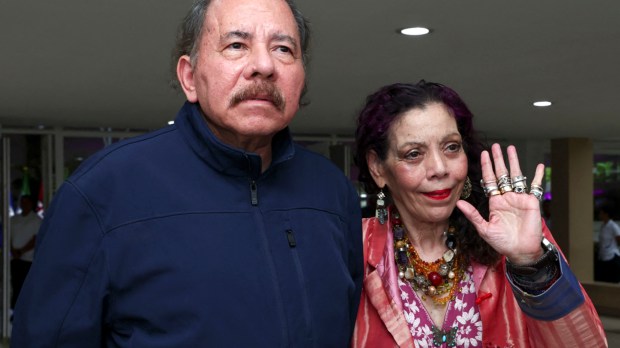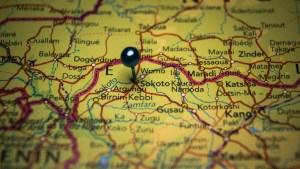COVID, the war in Ukraine, economic crises, and other issues diverted attention from the issue of religious freedom between 2020 and 2022. In many ways, that gave dictators around the world cover for disregarding and trampling on the rights of people of faith.
That’s according to the 16th edition of Religious Freedom in the World, a biannual report that Aid to the Church in Need has been publishing since 1999.
For the first time, the report has used the color red – indicating persecution – on a map of the Americas, singling out Daniel Ortega, president of Nicaragua, for mistreatment of the Catholic Church there.
“Some new autocrats have emerged during the reporting period, and existing ones have consolidated their position. In both cases, they have cracked down on religious leaders and faith groups, fearful of their influence and status in the community; in other cases, they try to co-opt them,” the report says.
In Nicaragua, the government began going after Bishop Rolando Álvarez of the Diocese of Matagalpa, an outspoken critic of Ortega since 2018. A court convicted him, reportedly, of treason, undermining national integrity and spreading false news. He was sentenced to 26 years in prison. The government also expelled the pope’s nuncio to the country, closed the Catholic bishops’ television station, and nationalized a Catholic university.
[Photo above shows Ortega with wife, Rosario Murillo, vice-president of Nicaragua.]
Marcela Szymanski, editor of the report, called Ortega“the prototypical autocrat who has a stolen election who has been tormenting their citizens.”
Countries rated
The report places 28 countries in the Red category for persecution. Those 28 nations have a combined 4 billion people, or 51.6% of the world’s population. Of particular note are the two most populous countries, China and India, which ACN finds are among the worst religious freedom violators.
“The autocrats at different levels of government combine harsh repression with soft persecution,” says the report. “Examples include controlling access to jobs, education and health services, installing mass surveillance, imposing financial and electoral obstacles, and failing to impose law and order when faith communities come under attack from local mobs or terrorists.”
In the Orange category (discrimination), the report finds that there has been considerable change during the review period. Included among the 33 countries in this category are three newcomers — Haiti, Israel, and the United Arab Emirates.
But two countries that were marked Orange in ACN’s 2021 report have moved the the Red category: Nicaragua and Sudan.
Finally, there is the “Under Observation” category. The 2021 report highlighted the need to remain vigilant, as human rights often disappear gradually, in small steps, without anyone noticing until it is too late.
Polite persecution
The 2021 report spoke about “polite persecution,” a term introduced by Pope Francis to describe laws, predominantly in the West, that, under the guise of culture and progress, curtail the fundamental rights of individuals — particularly the right of conscientious objection.
“In many countries, this concept has become prophetic, as intolerance has morphed into discrimination — when laws have been introduced making it ‘legal’ to strip away citizens’ fundamental rights,” says the report. “Healthcare workers are deprived of the right to freedom of conscience when they are obliged, under the threat of losing their jobs, to participate in procedures such as euthanasia or late-term abortion, or when someone can be arrested for standing in silence and praying within an abortion clinic’s buffer zone.” The document continues:
Developing from a recent cultural phenomenon — a rising wave of new anthropological norms and concepts — a new challenge to freedom of thought, conscience and religion is “compelled speech.” Authorities, including the courts, have begun to introduce new definitions to personal identity, which all citizens are not only expected to publicly accept, but compelled to use, risking the penalty of hate speech if not observed. The framed discourse itself becomes a means to deny conscientious objection.
Selective blindness
Actual persecution is not the only problem, according to the report. Pandemic-related economic challenges, exacerbated by energy shortages caused by the war in Ukraine and competing international trade interests, have led to “a selective blindness and deafness among Western leaders,” it charged. “Such governments, which previously prided themselves on a ‘rules-based world order,’ no longer upheld internationally recognized standards of human rights.”
“No Western nation can truthfully claim it doesn’t know about the abuses occurring on the Arabian Peninsula, China, Pakistan and Nigeria,” said the report. “With the West looking the other way, often motivated by the need to guarantee the provision of natural and energy resources, the perpetrators become more assertive and make local legislation more restrictive. In this way, impunity is tacitly granted to perpetrators by the ‘international community.’”




